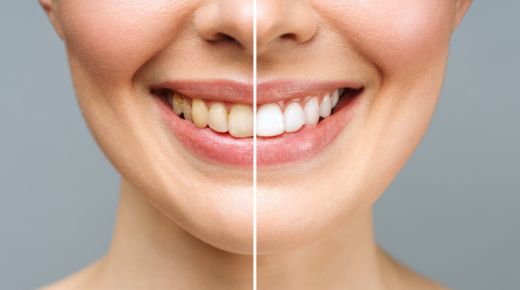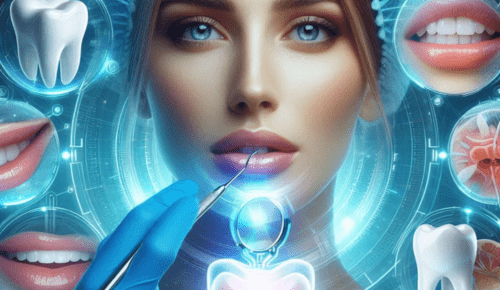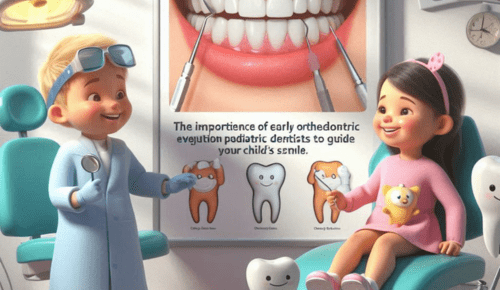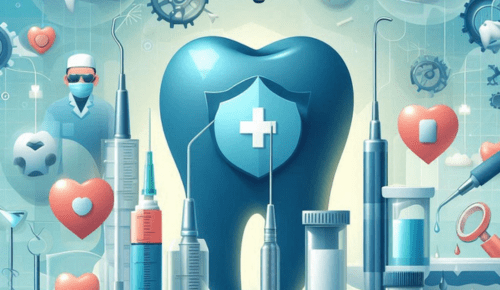
The Challenge of Discolored Dental Crowns – Can They Be Whitened?
Discolored dental crowns can significantly impact the appearance of your smile, affecting your confidence and self-esteem. At Wayne Valley Dental Care, our experienced team understands the importance of maintaining a radiant and healthy-looking smile. If you’re struggling with discolored dental crowns, you may wonder: can they be whitened? The answer is yes, but the effectiveness of whitening depends on the type of discoloration, crown material, and individual circumstances.
In this article, we’ll explore the causes of discolored dental crowns, whitening options, and prevention strategies to help you restore your crown’s original luster and achieve a beautiful, and vibrant smile.
Understanding Crown Discoloration
Crown discoloration refers to the unwanted change in color or staining of dental crowns, which can compromise the aesthetic appeal of a restored tooth. This discoloration can manifest in various forms, including yellowing, graying, darkening, or the development of noticeable stains. Crown discoloration can significantly impact the overall appearance of a smile, affecting an individual’s confidence and self-esteem.
Types of Discoloration
Discoloration can manifest in different ways:
- Intrinsic Discoloration: Stains penetrate the crown material.
- Extrinsic Discoloration: Surface stains affect the crown’s appearance.
- Combination Discoloration: Both intrinsic and extrinsic stains occur.
Causes of Discoloration
Before exploring whitening options, it’s essential to understand the causes of discoloration. Common reasons include:
- Food and Drink Stains: Coffee, tea, red wine, and berries can stain dental crowns.
- Tobacco Use: Smoking and chewing tobacco can lead to severe discoloration.
- Aging: Crowns can darken or yellow over time due to wear and tear.
- Poor Oral Hygiene: Inadequate cleaning and maintenance can cause stains.
- Materials: Certain crown materials, like porcelain or ceramic, can discolor more easily.
Exploring Whitening Options For Discolored Dental Crowns
While dental crowns can’t be whitened as easily as natural teeth, various methods can improve their appearance:
- Professional Cleaning: Regular cleanings can remove surface stains.
- Crown Polishing: A dental hygienist can polish the crown to restore its shine.
- Dental Bleach: Specialized bleaches can be applied to the crown.
- Crown Replacement: In severe cases, replacing the crown may be necessary.
- Veneers or Bonding: Additional restorations can cover discolored crowns.
Effective Measures to Prevent Dental Crown Discoloration
Preventing discoloration is possible through the following tips:
Dietary Precautions
- Avoid stain-causing foods: Coffee, tea, red wine, berries, and tomato-based sauces.
- Limit sugary and acidic foods: Candy, soda, and sports drinks.
- Choose water over colored beverages.
- Eat crunchy fruits and vegetables: Apples, carrots, and broccoli help clean teeth.
Oral Hygiene Habits
- Brush crowns gently: Use a soft-bristled toothbrush and mild toothpaste.
- Floss daily: Remove plaque and food particles.
- Rinse with mouthwash: Antibacterial mouthwash helps prevent stains.
- Regular dental cleanings: Schedule appointments every 6 months.
Lifestyle Changes
- Quit smoking: Tobacco use leads to severe discoloration.
- Limit alcohol consumption: Excessive drinking stains crowns.
- Avoid chewing tobacco.
- Wear a mouthguard: Protect crowns during sports or grinding.
Crown Maintenance
- Clean crowns regularly: Use a gentle crown cleaner.
- Avoid using teeth as tools: Refrain from opening packages or biting nails.
- Monitor crown condition: Report changes to your dentist.
- Replace old crowns: Update crowns every 10-15 years.
Product Selection
- Choose stain-resistant crowns: Ceramic or porcelain crowns.
- Use whitening toothpaste: Mild abrasives help maintain crown color.
- Select a gentle mouthwash: Alcohol-free and non-abrasive.
- Consider a Waterpik: Removes plaque and food particles.
Regular Dental Check-Ups
- Schedule regular appointments: Every 6 months.
- Consult your dentist: Address concerns or changes.
- Get professional cleanings: Remove tartar and stains.
Final words
Discolored dental crowns can significantly impact the aesthetic appeal of your smile, affecting your confidence and self-esteem. Fortunately, various whitening options are available to restore the original luster of your crowns. If you’re struggling with discolored dental crowns, consult your dentist to determine the best course of action. With the right treatment and care, you can achieve a brighter, more radiant smile that boosts your confidence and enhances your overall quality of life.



